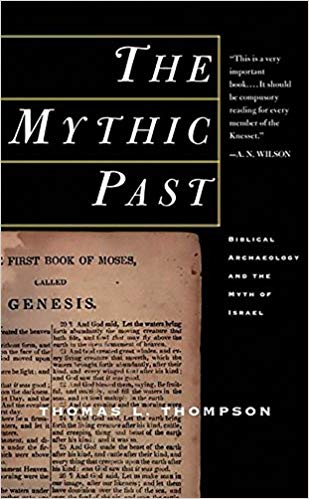 Biblical Israel, as an element of tradition and story, such as the Israel of the murmuring stories in the wilderness, or the people of the stories of II Kings who are faithless as their kings are faithless, or the lost Israel, which is the object of prophetic diatribe in Isaiah and Amos, is a theological and literary creation. This Israel is what I have called ‘old Israel’. It is presented as the polar opposite of an equally theological and literary ‘new Israel’, which is the implicit voice, for example, of II Chronicles, the Book of Psalms, the Damascus Covenant and the gospels. (p. 78 of The Mythic Past, Thomas L. Thompson)
Biblical Israel, as an element of tradition and story, such as the Israel of the murmuring stories in the wilderness, or the people of the stories of II Kings who are faithless as their kings are faithless, or the lost Israel, which is the object of prophetic diatribe in Isaiah and Amos, is a theological and literary creation. This Israel is what I have called ‘old Israel’. It is presented as the polar opposite of an equally theological and literary ‘new Israel’, which is the implicit voice, for example, of II Chronicles, the Book of Psalms, the Damascus Covenant and the gospels. (p. 78 of The Mythic Past, Thomas L. Thompson)
The Bible is a theological book with literary creations to illustrate its theological messages. It bears little resemblance to the material evidence of actual history. (The quotations and notes here — up until the last paragraph — are taken from Thomas L. Thompson’s The Mythic Past.)
Israel in the Bible . . . stands in sharp contrast to the Israel we know from ancient texts and from archaeological field work. (p. 78)
We first encounter the name in the Bible when it is bestowed on Jacob after he wrestled with God himself. He became the father of twelve sons who each became the father of one of the twelve tribes of the nation of Israel. This eponymous hero named Israel is a character of fiction, based on an assumed existence of a later Israel comprising of twelve tribes.
Few biblical scholars would doubt this today. Such ‘eponymous’ figures of story have a life of their own, quite apart from any real or assumed past. Odysseus’ struggle with the Cyclops need not have anything to do with a known past and hardly gives us cause to believe in historical Cyclopses in the Aegean’s past. Similarly, Israel’s tribes need not have been either twelve or tribes in reality.
Names in both history and tradition tend to have very long lives. They change over time and can come to have a variety of references.
The Bible built its fiction of ‘old Israel’
out of traditions, stories and legendary lore from Palestine’s past. Some of the sources for such ‘knowledge’ are very old, and it is useful to take a look at how such knowledge changes over time.
The variable name ‘Israel’
The earliest known usage of the name “Israel” is in an Egyptian inscription from the thirteenth century bce, the Merenptah stele. Pharaoh Merenptah boasts that he has destroyed, in the land of Canaan, among other peoples, “Israel’s seed” and that “Israel is no more”. Continue reading “Biblical Israel as Fiction”
Like this:
Like Loading...

